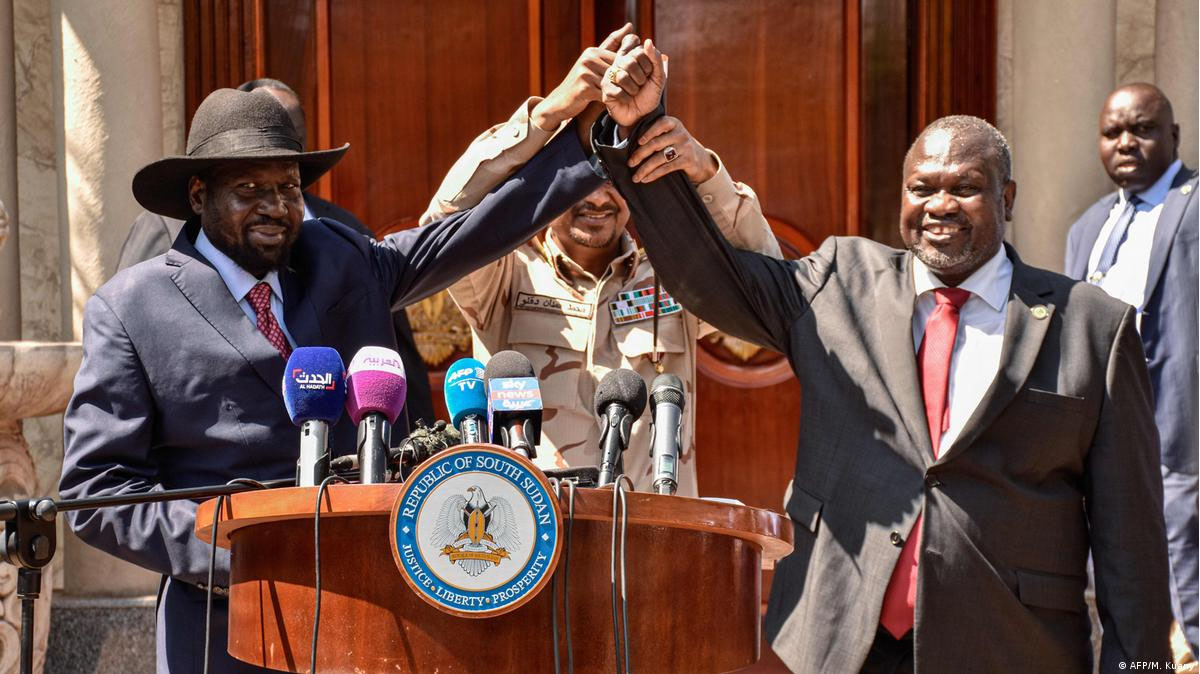
Photo Credit:AFP
According to a recent report a Dubai-based firm has agreed to help South Sudan’s government. The company, led by a distant relative of the Abu Dhabi royal family, has agreed to lend South Sudan €12 billion ($12.9 billion) in exchange for repayment in oil.
This deal would be the largest oil-backed loan South Sudan has ever taken out, according to a report the country’s gross domestic product (GDP) is about $7 billion, which means that this loan could potentially put an enormous amount of pressure on the country's already-squeezed public finances.The deal is huge, nearly doubling South Sudan's GDP. The document shows 70% going to infrastructure. But a loan this big—five times their current external debt—could keep South Sudan's oil revenues locked up for years.
The loan arrives amidst a robust push by Gulf countries and regional enterprises into new markets. In February, the UAE extended a $35 billion lifeline to Egypt, and it has committed more investment to African countries than any other region.The deal was signed on December 28th by South Sudan’s former Finance Minister, Bak Barnaba, and Hamad Bin Khalifa Al Nahyan, chairman of the Hamad Bin Khalifa Department of Projects (HBK DOP). The term sheet, seen by Reuters, shows that the loan will be delivered in dollars or euros, in exchange for crude delivered at discounted rates of $10 per barrel less than international benchmark prices. The country produces about 150,000 barrels per day.
According to the term sheet, infrastructure projects will receive 70 per cent of the funds, while 30 per cent will go toward the country’s working capital. However, there is growing concern that servicing the loan will tie up most of South Sudan’s oil revenues, which account for more than 90 per cent of public revenues, for many years.It could force the East African country to continue producing oil until at least 2043, years beyond the lifespan of the country’s existing oil wells.
South Sudan’s Minister of Information Michael Makuei has denied such a deal had been signed and argued that no single minister could sign such a document alone on behalf of the government. However, Reuters shared a copy of the signed term sheet with him, and he declined to comment further.Also HBK DOP's chairman, Al Nahyan, did not immediately respond to a request for comment sent to his LinkedIn account. Efforts to also reach Barnaba, the former finance minister, who was replaced in March without explanation proved futile.
Oil-backed loans present an appealing option for resource-rich developing nations. However, they come with risks. South Sudan has a troubled past with such agreements and has faced legal challenges for defaulting on payments.It is worth noting that South Sudan is already locked in a dispute with the Qatar National Bank after it failed to supply crude oil to service a 2012 loan that had grown to more than $600 million, the UN panel said. Moreover, oil revenues have been a source of significant corruption in the country, as President Salva Kiir admitted in 2012 that officials had stolen an estimated $4 billion of public money.
















